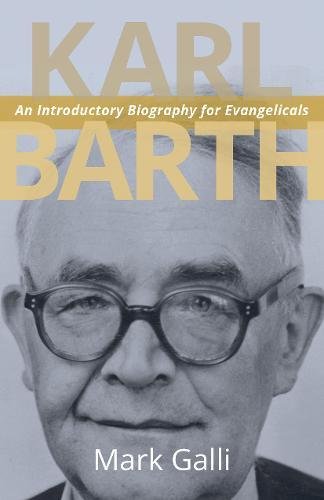Q. Your book does a great deal to humanize Barth in good ways, and to show us his pastoral and personal sides. One wonders how God evaluates his life in comparison to his Dogmatics which were mostly his life work? One wonders whether we tend to exalt the thoughts of a person without adequately seeing them in the context of all of who he was? And yet on the other hand, if we are to interpret a person at their best, which is to say graciously, then it seems to me that Barth’s writings and some of his pastoral work are where he really shines. Would you agree?
A. Yes I would. When he actually preaches the gospel, he’s much more inviting, and when he’s dealing with his theological enemies in person, he seems to be much more gracious.
Q. Karl Barth, unlike his son, was not an exegete, but rather a Biblical theologian. And not surprisingly he says that theology gives the clearest perspective on the truth. From your reading of Barth, how does he view the relationship between exegesis and theology?
A. He certainly believed the theology has to be built on exegesis. He didn’t have much sympathy with the historical-critical method in helping us, but he’s not averse to using it’s findings from time to time. What’s he IS really interested in is theological exegesis.
Q. In your last chapter, you point out the telltale signs in modern Evangelicalism that we seem to be falling back into the errors of old religious liberalism that Barth repudiated, and fought against. By this you mean that the focus on religious experience, or religious deeds, which amounts to a human-centered focus, is not where we should start or focus— it should rather be on God and his Word, and what God objectively has revealed in Christ and in the Scriptures. I entirely agree with this. One of the things that has struck me in my lifetime is all this talk about ‘discerning God’s will for my life’, whereas in the NT we are told repeatedly that we don’t need to go on a rabbit hunt to find out what that is. For example, Paul says ‘this is the will of God— your sanctification’. In other words, God has bigger plans for us than telling us which car to buy, what house to live in, what clothes to wear etc. Those things are mere adiaphora compared to what is said to be God’s will for the people of God. Ours is the age of the selfie and extreme narcissism. Say a few things practically about how you would use some of the things Barth says to combat this affective and self-centered approach to Christianity that we see again and again?
A. For someone who is enthralled with Christian experience, there is probably not a lot one can say that will make any difference. It is intoxicating—as well it should be—to have experiences of the Holy Spirit in one’s life. But sooner or later, people start to realize the thinness of experience as a foundation, and that’s when they are either going to abandon the faith as an irrational emotional experience—or go deeper and allow their faith to be grounded in something other than themselves. That’s when pastors and teachers need to be there, not as judges of their dependence on emotion, but as gentle guides to suggest there is a better way.
A BIG THANK YOU TO MARK GALLI FOR AN EXCELLENT DIALOGUE ABOUT BARTH! BW3













